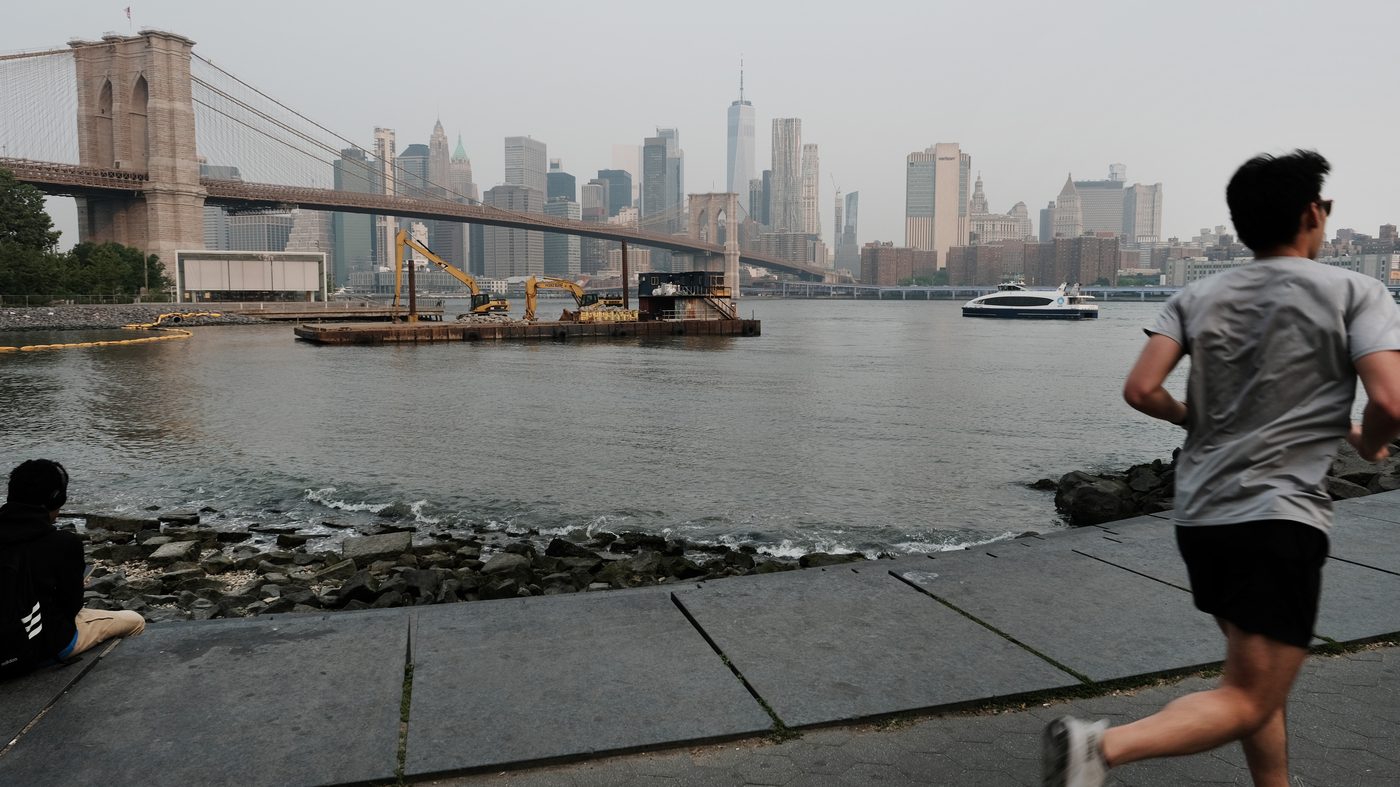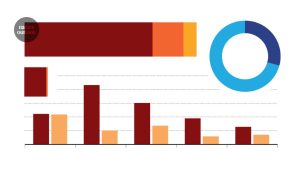
The East Coast has been blanketed by a haze due to the Canadian wildfires
What should we do about air quality, and how to prepare for it? A statement by Schlegelmilch, the director of the National Center for Disaster Preparedness, told NPR on Tuesday
“I think it’s important that we think of these things as we do any other health or hygiene process.” It’s a process. It’s not one moment in time that we take a specific action and we’re protected,” he said.
Still, Schlegelmilch says everyone should heed officials’ warnings about poor air quality. Common recommendations include staying indoors and using an air filter, wearing a mask like an N95 when outside and avoiding strenuous activities.
“If you’ve got a red alert for air quality, it’s probably not the right time to go for a jog or run because you are breathing more deeply and your lungs are more flexible,” he said.
The severity of poor air quality can also vary, which is why many agencies use color-coded systems (green is typically the best, while red is the worst) to communicate how bad the air is in a certain place at a given time.
“This is something that I think even for folks who are not involved to kind of pay attention to,” Jeff Schlegelmilch, director of the National Center for Disaster Preparedness at Columbia University, told NPR this week, “because this is the type of situation that we’re expecting that we’re going to see more of — not less of — into the future.”
AirNow states that the air quality database is maintained by several federal agencies and moderate air quality and air quality questionable for certain groups were also recorded in several states.
The Environmental Protection Agency was predicting that the smoke from the wildfire would linger over the region for some time.
Despite officials hoping that the rain coming later in the week will help control the fires, they were still sending smoke into the US on Tuesday.
Canada has been experiencing a particularly intense wildfire season, and many of the latest fires in Québec are so out of control that they’re sending smoke south across the border with the U.S.
Trudeau said at the news conference that it was a scary time for a lot of people, and they were all right across the country.
Canada has been experiencing a particularly brutal wildfire season this year, as extreme weather is worsening in part due to climate change. Blazes have recently flared up across Alberta, British Columbia and Nova Scotia.
But authorities from New England to as far south as Georgia were warning people to beware of poor air quality and the health problems that can result from breathing in too much smoke.
“The growing severity and frequency of extreme weather events like the wildfires in Canada and the ones popping up in our own backyard is proof of the intensifying climate crisis”, said New Jersey Gov. Phil Murphy.
Climate change is making wildfire seasons go longer, and the fires are burning more acres due to hot and dry conditions.
The impact of wildfires on air quality in the U.S. has caused a “hysteresis” across the East Coast
The National Weather Service said air quality across the US had plummeted on Tuesday and by Wednesday morning, it was inescapable in the news and across social media.
New York City’s public school system, the largest in the U.S., said Wednesday that it was canceling all outdoor activities. Washington, D.C., public schools did the same, scrapping recess, outdoor physical education classes and other events outside.
“Unless more fires start burning, I don’t expect the concentrations to go up too much higher,” DeCarlo said. “I think the next couple days we’re going to see a shift in that weather pattern [which will] start to push that smoke away from where we are.”
Peter DeCarlo, an associate professor of environmental health and engineering at Johns Hopkins University, told NPR that weather conditions in the U.S. were making it possible for wildfire smoke to spread over the region.
People in some areas were being told to stay inside as much as possible, avoid travel, and refrain from strenuous activity.
Millions of people along the East Coast were woken up by a cloud of hazy air Wednesday morning due to smoke from fires in Canada.

